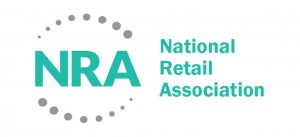
As society continues to move away from plastic, ensuring a smooth transition for business and the wider public is essential, which is why the National Plastics Plan should face minimal backlash.
By National Retail Association CEO Dominique Lamb.
Shopping in Australia is constantly changing, reflecting cultural, technological and other influences, including shifting community attitudes to the environment or other social causes.
A cultural shift recently has been that of people working non-traditional business hours and therefore shopping outside the standard 9am-5pm window, while technology increasingly has altered consumer behaviour – think self-serve checkouts and the advent of online retail.
When it comes to environmental concerns, one of the most fundamental reforms to the retail sector in recent years has been policies to phase out the use of plastic. Businesses of all shapes and sizes across the sector have been required to comply with measures banning single-use plastic items.
Each state and territory, with the exception of NSW, has prohibited the supply of plastic bags, while South Australia recently became the first state to extend a ban on single-use plastic items to include straws, cutlery and stirrers. The ACT, Queensland and Victoria have already passed similar laws that will soon come into effect.
On top of all this, the federal government has now announced further bans on plastic, with its ‘National Plastics Plan’ report outlining wide-ranging measures to drastically cut down plastic waste and to find practical alternatives. Many of the initiatives will apply to retailers across the sector, including those operating smaller businesses such as convenience stores or cafes.
Among the more prevalent reforms affecting retailers are the phasing out of polystyrene food and beverage containers by December 2022, and the requirement that a minimum 80% of products on shop shelves carry the Australasian Recycling Label by December 2023, and that 100% of packaging be recyclable, reusable or compostable by 2025.
Clearly, all levels of government across the nation are moving in the same direction when it comes to curbing our reliance on plastic. Even in NSW, which still allows single-use plastic bags, the argument from the government is more practical than philosophical. With many major retailers having implemented their own prohibition on plastic, NSW feels that legislation isn’t needed given industry is moving that way anyway.
At the NRA, we often get asked for our position on policies to curb the amount of plastic society uses. We take a pragmatic approach: we understand the need to lift environmental standards but recognise the need to conduct these reforms properly. Significant lead time is required to ensure that businesses have adequate opportunity to understand how new laws affect them and to devise alternative strategies. Without sufficient consultation between government and business, rushed reforms can cause significant disruption to both retailers and their customers.
For instance, when a major industry chain announced in 2018 that it would cease the supply of plastic bags, it quickly found out that such a change can’t be made overnight. Consumers simply hadn’t been given enough time to prepare for and accommodate the change. After facing significant customer backlash over the snap decision, that major retailer was forced temporarily to offer free reusable bags.
It’s essential to take people with you when it comes to implementing basic changes to the way people shop. Hence, we believe that the National Plastics Plan will face minimal public backlash given the strong lead times in place and the clear timeline that has been set out. The NRA looks forward to working constructively with all levels of government as society continues to move away from plastic to ensure a smooth transition for business and the wider public.
 About Dominique Lamb
About Dominique Lamb
Dominique Lamb is the CEO of the National Retail Association and has extensive experience providing industrial relations and employment law advice to a range of small, medium-size and large businesses across a range of industries.
The National Retail Association
The National Retail Association (NRA) is Australia’s largest and most diverse industry association. As a not-for-profit organisation, its members range from small, family owned and operated businesses to leading national brands.


